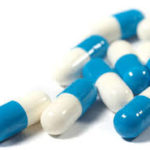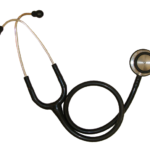 Gout is a very common cause of tremendous acute pain and ill health. It is uncommon in young women (but may present as chronic arthritis in elderly women) and more common in blacks than Caucasians. It is, however, rarely fatal.
Gout is a very common cause of tremendous acute pain and ill health. It is uncommon in young women (but may present as chronic arthritis in elderly women) and more common in blacks than Caucasians. It is, however, rarely fatal.
Gout is from the Greek work ‘gutta’ which means ‘drop of evil humor’. It causes arthritis, soft tissue mass, and kidney disease (from renal stones/failure).
Risk factors for Gout include: Obesity, Being Male, High triglyceride level (a form of cholesterol), Kidney disease, and Alcohol consumption. Being on certain medications like diuretics may also increase the risk.
Prevention of Gout is achievable by
- Loss of weight
- Increase in dairy intake
- Avoid high in purine foods, oatmeal, peas, beans, lentils, spinach, mushrooms, cauliflower, beer, meat.

Treatment
- Non-Steroidal Anti-inflammatory drugs like Advil, Ibuprofen or Colchicine. Allopurinol may also help to prevent gout attacks.
- Consumption of cherries is sometimes helpful because they have in them natural anti-inflammatories.
- Consuming more dairy can reduce the incidence of gout attacks.
 Pathology of Gout: High levels of urate levels in the blood increases your risk of Gout attacks.
Pathology of Gout: High levels of urate levels in the blood increases your risk of Gout attacks.
The diagnosis of Gout is usually a clinical one. Patients typically will complain of pain that is often monoarticular and disproportionate to clinical findings. Most times the joint of the foot is a victim of a gout attack.
These attacks may be triggered by dehydration, cold temperature, dehydration or trauma. Each attack episode may last for weeks sometimes.
On physical exam, it is common to find the joint swollen, painful and warm. There might even be a fever.
Joint aspiration of the joint is the gold standard to confirm Gout.
Laboratory evaluation of blood will show a high uric acid level, however, this alone is not diagnostic
Acute treatment of gout involves the use of NSAIDs as the first line, Colchicine as the second line, steroids as the third line.
In addition, patients are advised to avoid using diuretics, niacin or low dose aspirin. They should also reduce consumption of beer, fish, and meat.
For chronic management, Allopurinol may be added to the patient’s medication